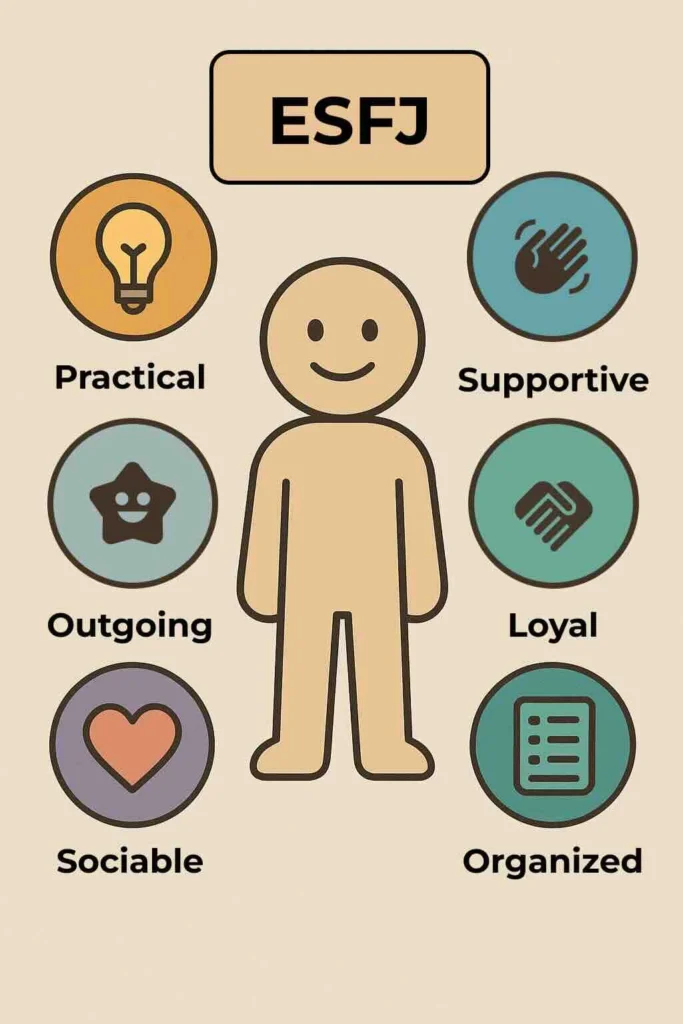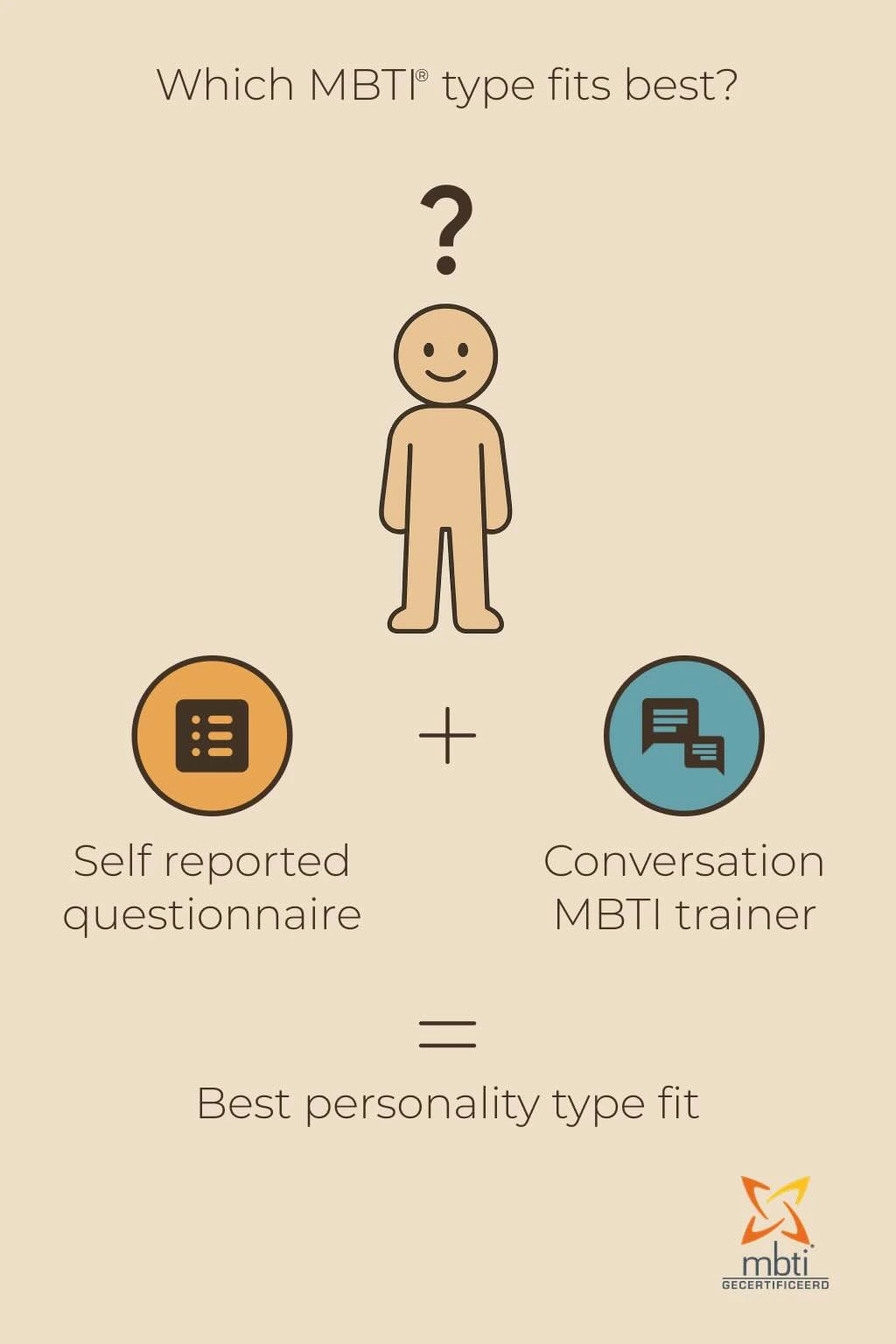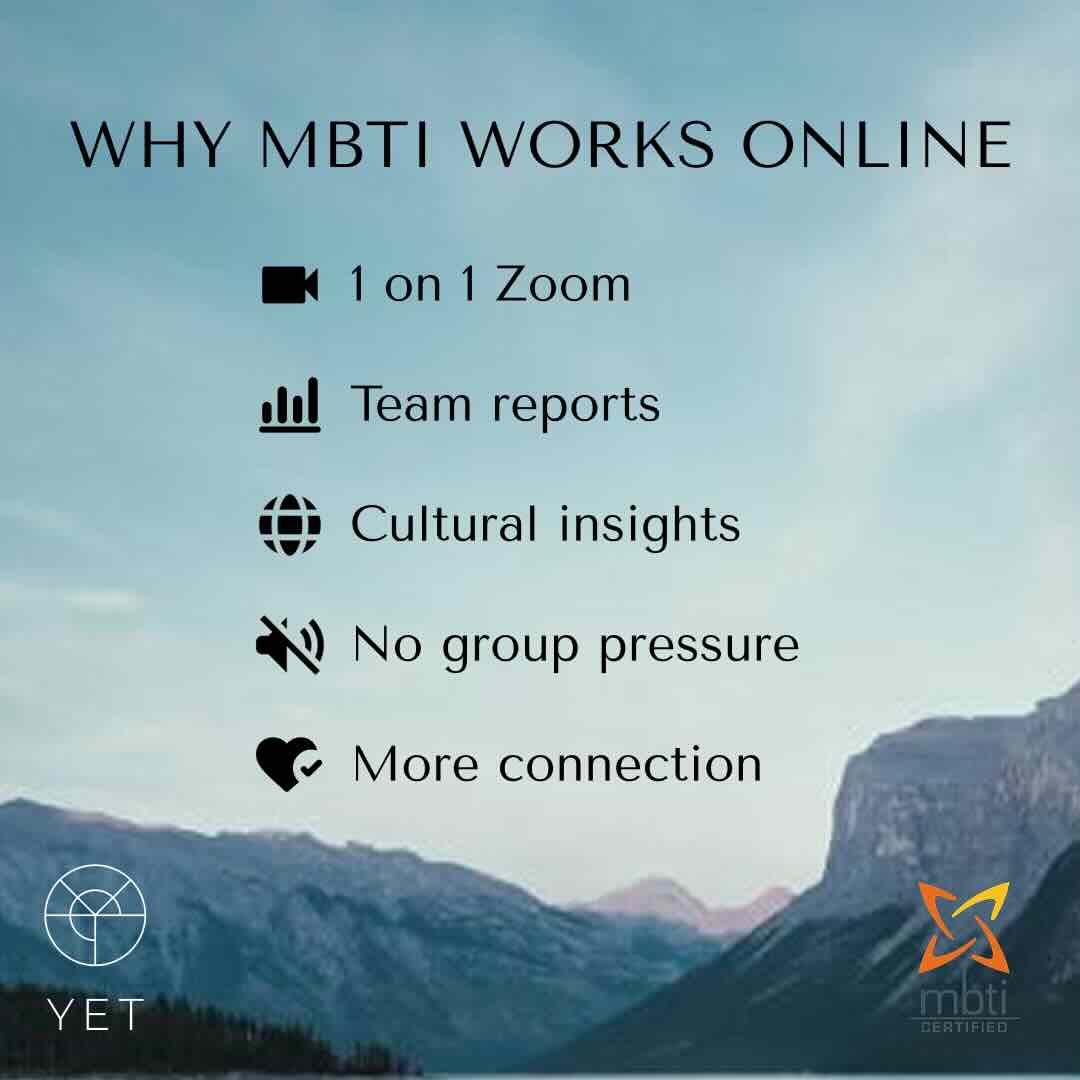ESFJ personality type: compassionate organizers of people and harmony.
The ESFJ personality type is one of the most common types. Known for their warmth, practicality, and deep sense of duty, ESFJ’s are the type of people who love to help others and create harmony in their environment. Let’s take a closer look at what makes the ESFJ so special.
Key Traits of the ESFJ personality type
1. Caring and Empathetic
ESFJ’s are deeply in tune with the emotions of those around them. They are often seen as the emotional glue that holds groups together, always stepping in to ensure everyone feels valued and supported. Their empathetic nature allows them to connect with people on a personal level, making them wonderful friends, family members, and colleagues.
2. Organized and Dependable
ESFJ’s love structure and routine. They thrive in environments where there are clear expectations, and they are known for their strong organizational skills. Whether it’s planning a family gathering or managing a project at work, ESFJ’s ensure that everything runs smoothly and efficiently. Their reliability makes them the type of people others trust to get things done.
3. Value Tradition and Social Harmony
ESFJ’s are often drawn to traditions and social norms, finding comfort in familiar routines and established ways of doing things. They place a high value on maintaining harmony and will go out of their way to avoid conflict. Their respect for tradition often makes them the organizers of family events and community gatherings, where they excel at bringing people together.
4. Loyal and Supportive
Loyalty is a core value for ESFJ’s. They are fiercely protective of their loved ones and will go to great lengths to support and care for them. ESFJ’s often put the needs of others before their own, sometimes to the point of neglecting their own well-being. However, their desire to nurture and care for those around them makes them incredible friends and partners.
ESFJ’s in the workplace
ESFJ’s excel in roles that allow them to interact with people and provide tangible help. They thrive in professions where they can use their organizational skills and caring nature, such as healthcare, teaching, or social work. Their ability to create order out of chaos makes them invaluable in roles that require attention to detail and a structured environment.
However, ESFJ’s can become stressed in situations where there is constant conflict or uncertainty. They prefer clarity and cooperation and may feel uncomfortable in overly competitive or unpredictable work environments. When given the chance to work in a harmonious setting where they can make a difference, ESFJ’s will shine.
Strengths of the ESFJ personality type
– Warm and Caring: ESFJ’s genuinely care about the well-being of others and often go out of their way to ensure those around them are happy.
– Organized: Natural planners, ESFJ’s are excellent at managing schedules, projects, and events.
– Loyal and Reliable: ESFJ’s are dependable and always there when you need them. Their loyalty to their loved ones is unwavering.
– Sensitive to Others’ Needs: They are attuned to the emotions and needs of others, making them excellent at providing emotional support.
Challenges for ESFJ’s
– Overly concerned with others’ opinions: ESFJ’s can sometimes put too much stock in what others think of them, leading to stress or insecurity.
– Difficulty with conflict: Because they value harmony, ESFJ’s often avoid conflict, even when it’s necessary to address a problem.
– Overworking themselves: ESFJ’s can easily overextend themselves by constantly putting others’ needs ahead of their own, leading to burnout.
– Resistance to change: Their love for tradition and routine can make it challenging for ESFJ’s to adapt to new ideas or changes in their environment.
Conclusion
ESFJ’s, with their caring nature and organizational strengths, are the heart of many social and professional settings. They thrive when they can help others and bring order to their world. While their focus on harmony and tradition is a strength, learning to navigate conflict and care for themselves as much as they care for others will help them achieve a more balanced, fulfilling life.
Read more about the ESFJ personality type in a cultural context:
Read more about the ESFJ personality type in a cultural context here.
Read more about the ESFJ personality on our Instagram account:





